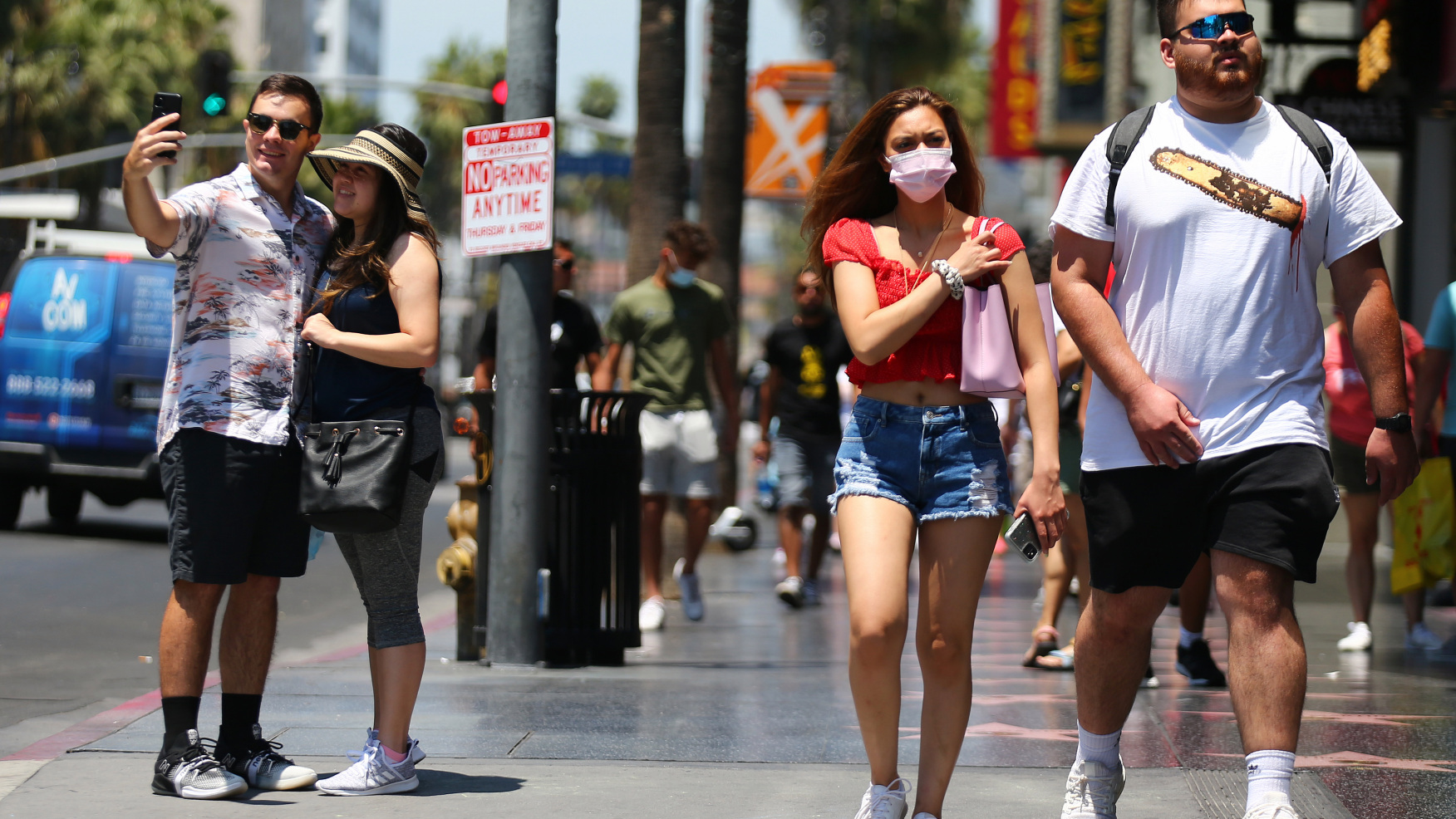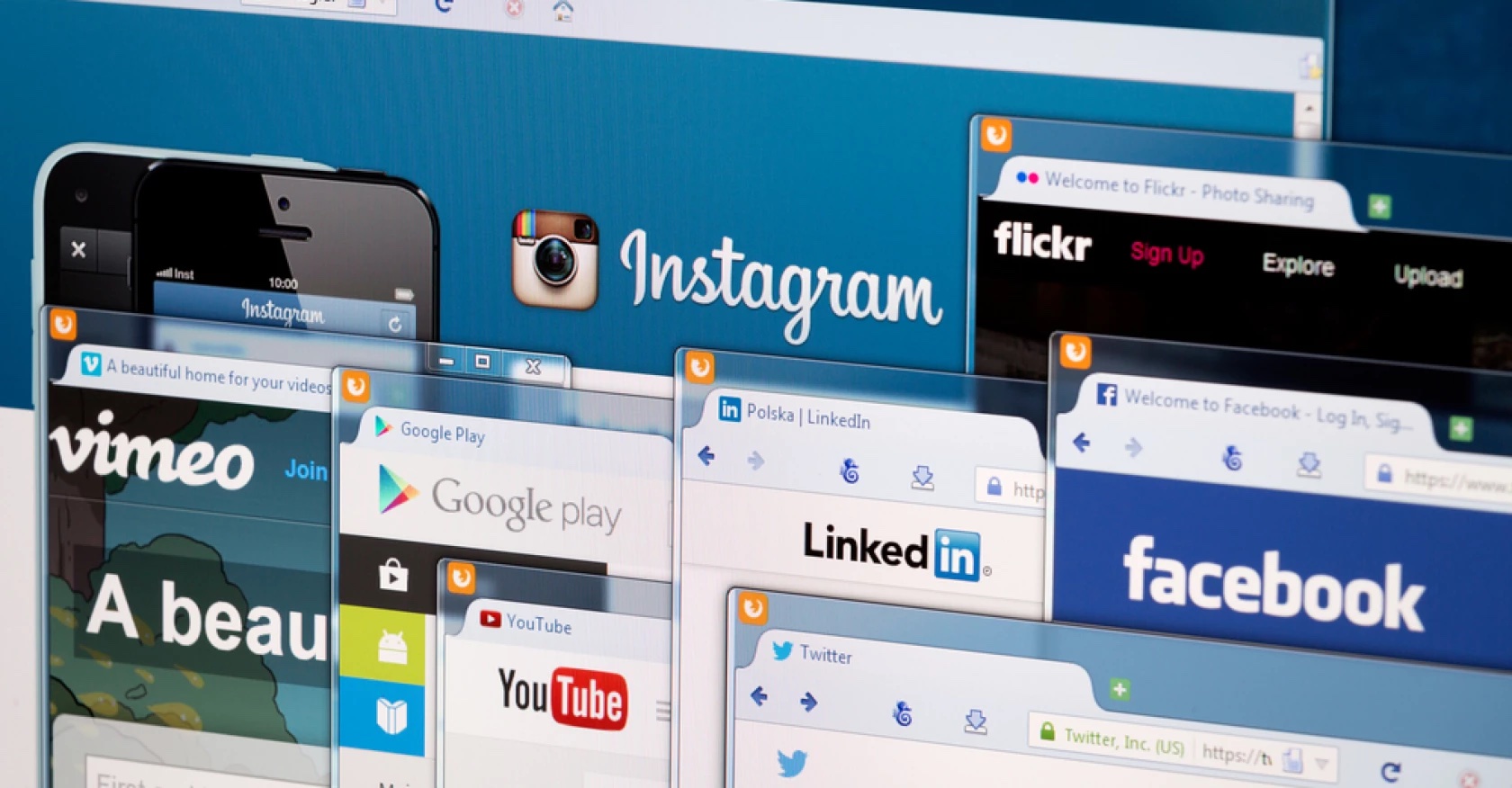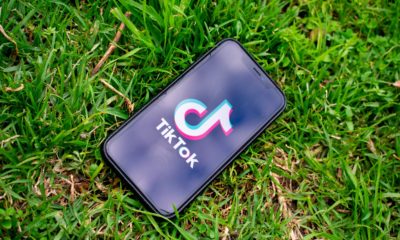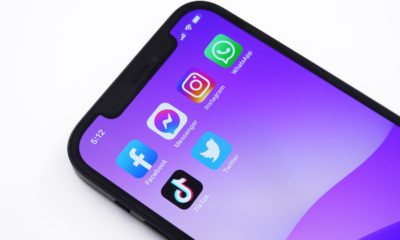World
How Do We Deal With Social Media Stress?


Our new age of information resides almost solely on a screen. As beneficial that can be (specifically for data accessibility and networking), it’s opened a new channel for stress. Your phone can seem charming at times and can lead to a negative effect on your mental health. Online usage can be classified as an addiction. How should we deal with it? Let’s dive into this topic.
Before we talk about potential solvency, it’s essential to identify the causes of screen-related anxiety. As a frequent user myself, I’ve come into contact with the majority of the most common instances. For starters, posting can be challenging. Activists like Gary Vaynerchuk preach that the internet’s opinions don’t matter, but that concept is difficult for most to execute. While it’s true that self-love should be adopted, exposing yourself to the internet can be too daunting. Essentially, the fear that your post will be received poorly is very stressful, and it can lead to posting anxiety.
Posting stress is not fun to deal with. The solution? Putting down your phone. This sounds very clique, but it’s the best action that you can take in this situation. Unlike other forms of stress, it’s entirely under your control. Posting anxiety can be dismantled in a few ways. First of all, the concept is ludicrous. Realistically, what’s the worst thing that can happen? If an unknown internet dweller chooses to leave a hate comment, it’ll likely have no lasting effect on your life.
Secondly, your perspective of yourself doesn’t always mirror that of others. Most of your followers won’t notice that pimple you worry about, or your “unnatural” pose. While we expect that kind of judgment to be bestowed upon us, it ever really happens. Finally, posting anxiety is avoidable if you simply choose to ignore the analytics themselves. Nothing requires you to check your phone, so a detox from the screen can truly put things into perspective. The most significant step is realizing that your phone life doesn’t always transfer to the real world.
Asides from judgment-related anxiety, the issue of unrealistic standards is exceptionally prominent. It’s important to realize that everything on social media is filtered to some extent because everybody wants to put their best foot forward. Whether it be through filters, hundreds of discarded photos (in conjunction with the one that is posted), nobody posts a picture without considering how it makes them look. This applies specifically to models. A lot of insecurity stems from this idea that models are ideal, yet this is simply not true. Most Instagram posts are edited beyond recognition, so no emphasis should be put on the comparison.
Social media anxiety isn’t fun to deal with, and it certainly isn’t an ideal way to allocate your stress. As digital media’s prominence continues to grow, we must consider our health before diving into the online world.
World
COVID-19 Cases Rise As New Delta Variant Spreads


Several countries worldwide are now battling another wave of COVID-19 that is mainly due to the new Delta variant. Per several studies, this variant seems to be more contagious than the other previous strains.
According to the U.S. Centers for Disease Control and Prevention (CDC), the number of COVID-19 cases has risen by over 53% in the last week, and the Delta variant is responsible for 80% of these new cases that have been found in the USA. As of 30th July 2021, over 90 countries have been affected by this virus, with the epicenters being the UK, USA, Portugal, Germany, and India.
On Thursday, 29th July, the CDC released details citing how the delta variant has changed the war against Covid-19. According to the CDC, this variant spreads faster than the common cold, the 1918 flu, and smallpox.
To give more context about this new COVID-19 variant, let’s share some facts that you may need to know about it.
The Delta variant has similar symptoms with the original strain
People that have been affected by this variant appear to have similar symptoms to those with the older variants. However, physicians say the delta variant multiplies faster in the respiratory tract, making young people sicker faster.
The Delta variant brings mild symptoms amongst the vaccinated
Most of the vaccinated people are asymptomatic to this variant, so they will likely show no signs. However, some have experienced mild symptoms like headache, cough, fever, and significant loss of smell.
The Delta variant impacts unvaccinated people more
Currently, in the USA, over 97% of the people hospitalized with COVID-19 are unvaccinated. This new variant may easily lead to severe symptoms, hospitalization, and death for those not vaccinated.
Experts are recommending wearing masks for even those that are vaccinated
To safeguard yourself from this variant, experts recommend wearing masks even for those already vaccinated. However, experts still say people who are vaccinated are unlikely to get severe symptoms that require hospitalization.
World
How Activists Are Using Social Media To Fight Anti Semitism


Anti Semitism is defined as “a certain perception of Jews, which may be expressed as hatred toward Jews. Rhetorical and physical manifestations of antisemitism are directed toward Jewish or non-Jewish individuals and/or their property, toward Jewish community institutions and religious facilities.”
Anti Semitism is not a new form of hate. In fact, it has existed for thousands of years. Yet, to some extent, Anti Semitism has been recently streamlined through social media. Anonymity online has led to an uptick in hate speech towards various groups, one of which is the Jewish population. Because online posts generally see more minor consequences (in contrast to in-person actions and words), they’ve become a hub for extremism to flourish.
But similar to how social media is used to spread Anti Semitic rhetoric, it is also being used to combat it. One organization that fights Anti Semitism online is Stop Anti-Semitism, founded in 2018 by Liora Rez.
Liora, a previous content creator in her own right, pivoted her audience and built a new organization to focus on antisemitism. The organization reaches millions of people per month through social media platforms, their website, and a mailing list. Stop Anti-Semitism has also teamed up with reporters, law enforcement, congressional members, and global NGOs to help expose and stop antisemitism.
The organization has been able to hold antisemites accountable through school suspensions, job losses, and arrests. StopAntiSemitsm is one of the biggest platforms fighting anti-Semitism on social media and has amassed a following of over 47,000.
Another social media page fighting is Stand With Us. With over 330,000 followers on Instagram, their outreach is massive. Unlike the targeted approach that stops Anti Semitism takes, Stand With Us focuses on tackling antisemitism on a huge scale as well. They’ve sponsored many rallies against antisemitism across the world. At the same time, they’ve started up high school clubs all throughout America. Stand With Us is exceptionally organized, with over a hundred employees.
As a member of the Jewish community, I find the rise of anti-Semitism extremely concerning. I know of many people within the Jewish community who have begun to hide the fact that they are Jewish as they fear repercussions that they may face. Social media has been used to inspire members within the Jewish community to be prideful of their culture and religion. At the same time, it has become the battlefield against the cancer of antisemitism. Stand With Us and Stop Anti Semitism are just a few of the dozens of accounts that focus on combating the rise in antisemitism.
World
Social Media Challenges Florida With New Policy Announcement


We previously told you about how Floridian Governor Ron DeSantis (R) recently signed a big anti-social media bill into law.
The legislation targets big social media companies like Facebook, Instagram, and Twitter. Under it, no longer can companies ban political candidates or officials from participating on their platforms.
“What we have seen in recent years is a shift away from internet platforms and social media platforms from really being liberating forces to now being enforcers of orthodoxy,” Gov DeSantis notes.
That bill covers both statewide and national candidates, though the fines for social media companies removing statewide candidates are much bigger. If a candidate runs for statewide office, the penalty is $250,000 per day (compared to $25,000 a day for out-of-state positions).
Many policymakers are contesting the premise of such a bill. Oregon senator Ron Wyden (D) notes: “The First Amendment to the United States Constitution — backstopped by Section 230 — makes it abundantly clear that states have no power to compel private companies to host speech, especially from politicians.”
Lawsuits against the bill (many of which are based on constitutionality and are led by social media platforms) have already emerged.
Likewise, Facebook’s new policy announcement importantly indicates that the social media giant isn’t backing down to the threat of fines.
In the future, Facebook is now publicly looking to remove its rule on political exemptions, indicating that candidates and those in office no longer have near immunity for what they say or do on the platform.
Previously, policymakers and candidates held a level of newsworthiness that made banning them on social media sites (in this case, Facebook) complex.
Facebook explains: If “someone makes a statement or shares a post which breaks our community standards we will still allow it on our platform if we believe the public interest in seeing it outweighs the risk of harm.” That rule supposedly won’t be around for much longer.
If Florida stays where they are, federal courts might also get involved. By extending into the topic of constitutionality, federal courts now have jurisdiction to get involved and overrule/uphold legislation created by the state supreme courts.
-



 World4 years ago
World4 years agoArtificial Intelligence in the Modern World
-



 Spzrts4 years ago
Spzrts4 years agoWhat’s the Hype Around FlightReacts?
-



 Genfluencer4 years ago
Genfluencer4 years agoHow StevoLuddy Uses TikTok to Further Pursue His Passion
-



 Genfluencer4 years ago
Genfluencer4 years agoHow Rowan Winch Makes Thousands From His Phone
-



 Digital Culture4 years ago
Digital Culture4 years agoThe Effects of Social Media on the iGen (Generation Z)
-



 Digital Culture4 years ago
Digital Culture4 years agoHow to Navigate TikTok with Adam Meskouri
-



 Business3 years ago
Business3 years ago5 Tips for Starting a Limited Liability Company
-



 Digital Culture3 years ago
Digital Culture3 years agoWhy YouTuber Niko Omilana Is Running For Mayor




















